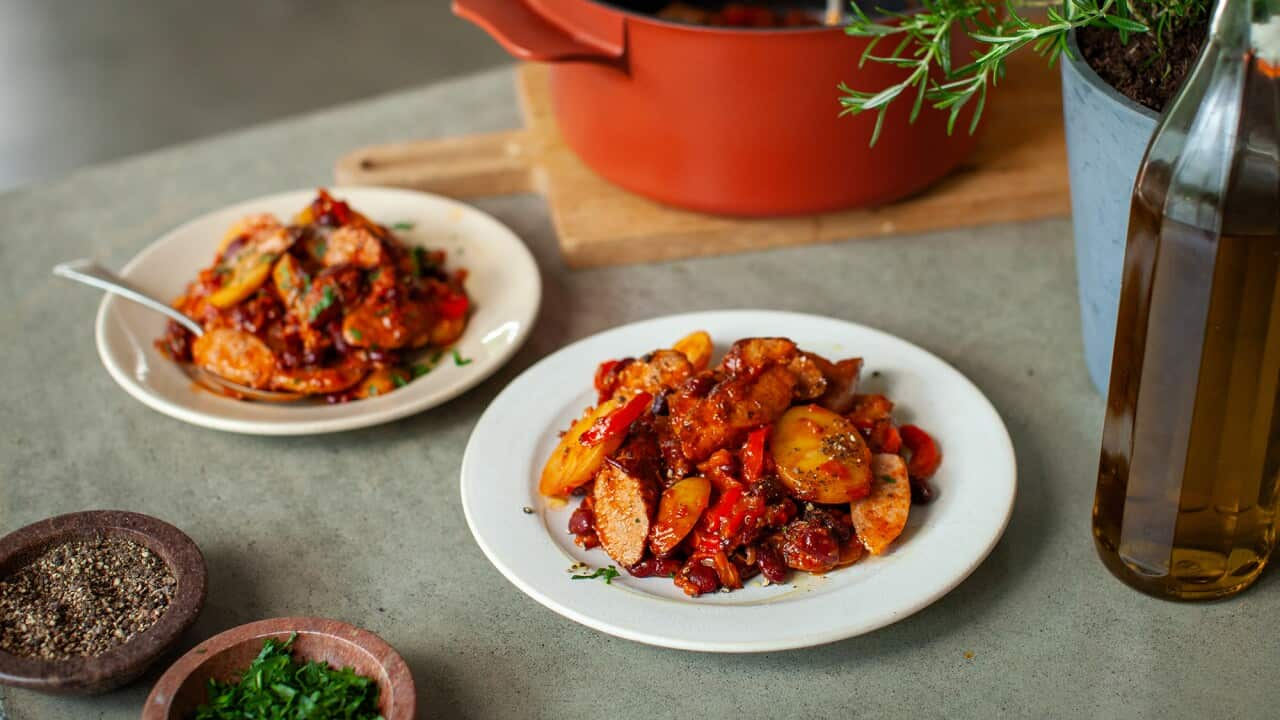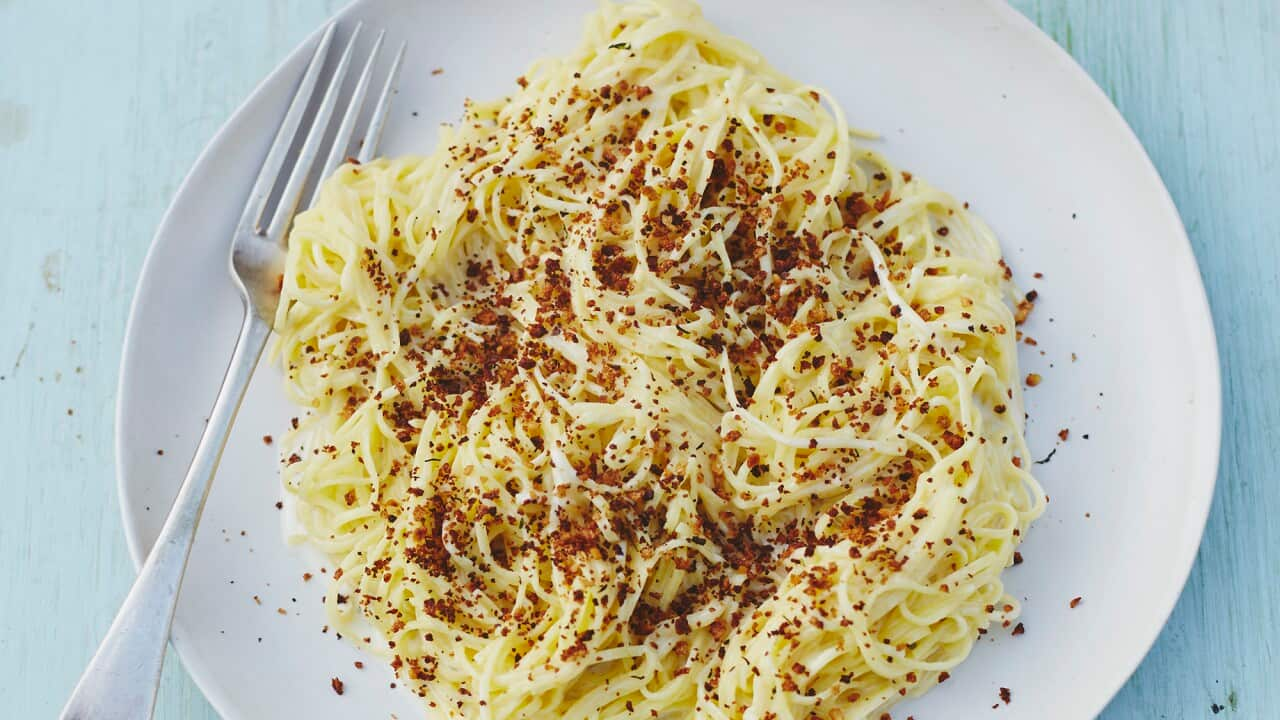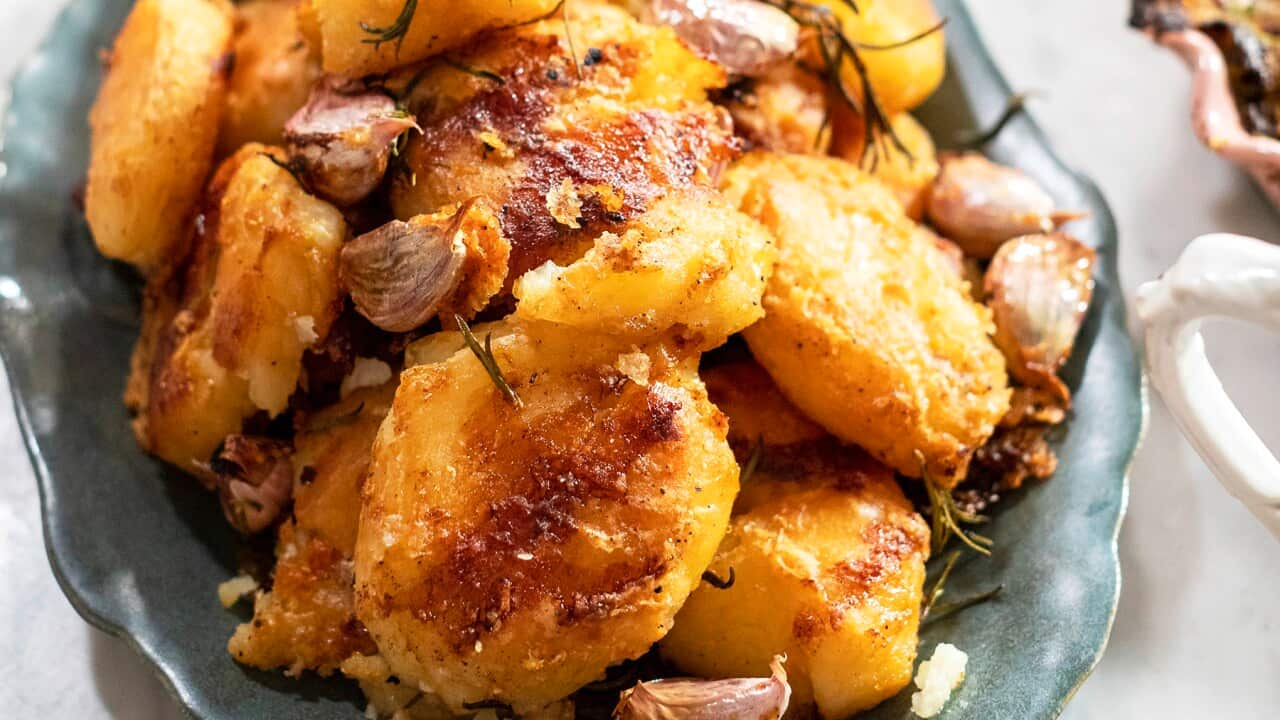serves
8-10
prep
30 minutes
cook
40 minutes
difficulty
Mid
serves
8-10
people
preparation
30
minutes
cooking
40
minutes
difficulty
Mid
level
In the past, dairy has been scarce in Asian countries and the fat content is substituted by oil and eaten without any further dressing. You will note an interesting feature in the method that specifies to use a tin which is not non-stick and further, not to grease this. The reason behind this is that to achieve the impressive height and lightness of a classic chiffon cake, you are essentially attempting to defy gravity. By immediately inverting it as it comes out of the oven, the 'stick' factor keeps the cake suspended and the cake from collapsing. When you buy it from the store, you always get a choice of pandan and orange. Here, I've opted for Jaffa flavours (orange and chocolate) to put an Aussie spin on it.
Ingredients
- 5 egg whites, at room temperature
- ½ tsp cream of tartar, sifted
- ⅓ cup (75g) caster sugar
- 5 egg yolks
- 5 tbsp (100 ml) coconut milk
- 4 tbsp (80 ml) vegetable oil
- ⅓ cup (75 g) caster sugar, extra
- 4 tbsp (80 ml) orange juice
- 1 tbsp orange zest, finely grated
- 150 g plain flour, sifted
- 1¾ tsp baking powder, sifted
- 1 pinch of salt
Roasted hazelnuts
- 150 g hazelnuts
Filling
- 400 ml pouring cream
- 3 tbsp icing sugar
- 1 tsp vanilla bean paste or natural vanilla extract
Ganache
- 150 ml pouring cream
- 200 g good-quality dark chocolate, chopped or broken into small pieces
Cooling time: 2 hours
Instructions
- Preheat oven to 170°C (160°C fan forced).
- In a large bowl, beat the egg whites and cream of tartar with an electric mixer until soft peaks form. Add the sugar one tablespoon at a time and beat thoroughly after each addition until you achieve stiff peaks. Set aside.
- In a separate bowl, whisk egg yolks with extra caster sugar until thick, pale and fluffy. Add coconut milk, vegetable oil, orange juice and zest, flour and baking powder, and whisk until combined. Gently fold the egg whites into the yolk mixture in three batches.
- Pour into a 22 cm angel cake tin (see note). It is important that you do not use a non-stick tin and do not grease it. Bake for 30 minutes on the middle shelf, or until a skewer inserted in the centre of the cake comes out clean. Leave the oven on to roast the hazelnuts.
- When cake is out of the oven, immediately invert the tin and leave the cake in the tin to cool completely (about 2 hours).
- Roasted hazelnuts: Place the hazelnuts on a baking tray and roast for seven minutes, or until the skins are splitting and flakey. Remove from the oven and pour into the middle of a clean tea towel, wrap up and gently rub the skins off. Place the nuts on a chopping board and chop to desired texture.
- Filling: Whip the cream, sugar and vanilla in a bowl until stiff - be careful not to over-beat as the cream will split. Cover with plastic wrap and refrigerate until required.
- When the cake is cool and ready to be assembled, run a knife around the edge and base of the cake and invert to release. Slice the cake with a sharp chef's knife into three equal layers. Spread half of the filling and a third of the chopped hazelnuts on each layer.
- Ganache Bring the cream to the boil in a small saucepan. Remove from the heat, add chocolate and whisk until the chocolate is melted and well combined. Place the cake on a wire rack and, using a spatula, spread the ganache evenly over the top and side of the cake and sprinkle with the remaining chopped hazelnuts.
Note
• An angel cake tin is a special ring tin with a removable flat bottom, and flat, not fluted, sides.
, season 1 to season 3, premieres on Tuesday 20 November at 8.30pm. The series airs Tuesdays at 8.30pm on SBS Food (Channel 33). After they air, episodes will stream at .
Cook's Notes
Oven temperatures are for conventional; if using fan-forced (convection), reduce the temperature by 20˚C. | We use Australian tablespoons and cups: 1 teaspoon equals 5 ml; 1 tablespoon equals 20 ml; 1 cup equals 250 ml. | All herbs are fresh (unless specified) and cups are lightly packed. | All vegetables are medium size and peeled, unless specified. | All eggs are 55-60 g, unless specified.
In the past, dairy has been scarce in Asian countries and the fat content is substituted by oil and eaten without any further dressing. You will note an interesting feature in the method that specifies to use a tin which is not non-stick and further, not to grease this. The reason behind this is that to achieve the impressive height and lightness of a classic chiffon cake, you are essentially attempting to defy gravity. By immediately inverting it as it comes out of the oven, the 'stick' factor keeps the cake suspended and the cake from collapsing. When you buy it from the store, you always get a choice of pandan and orange. Here, I've opted for Jaffa flavours (orange and chocolate) to put an Aussie spin on it.









